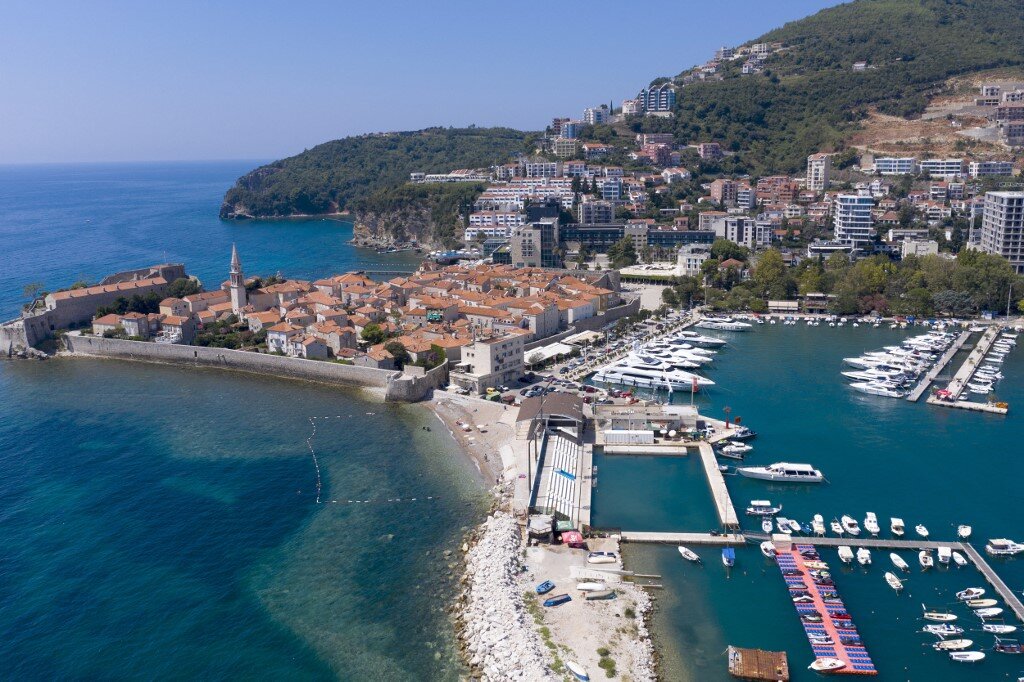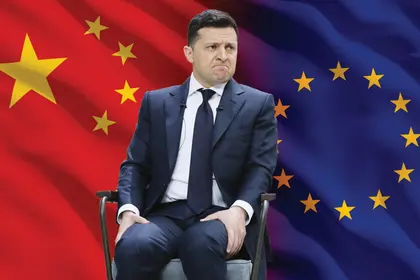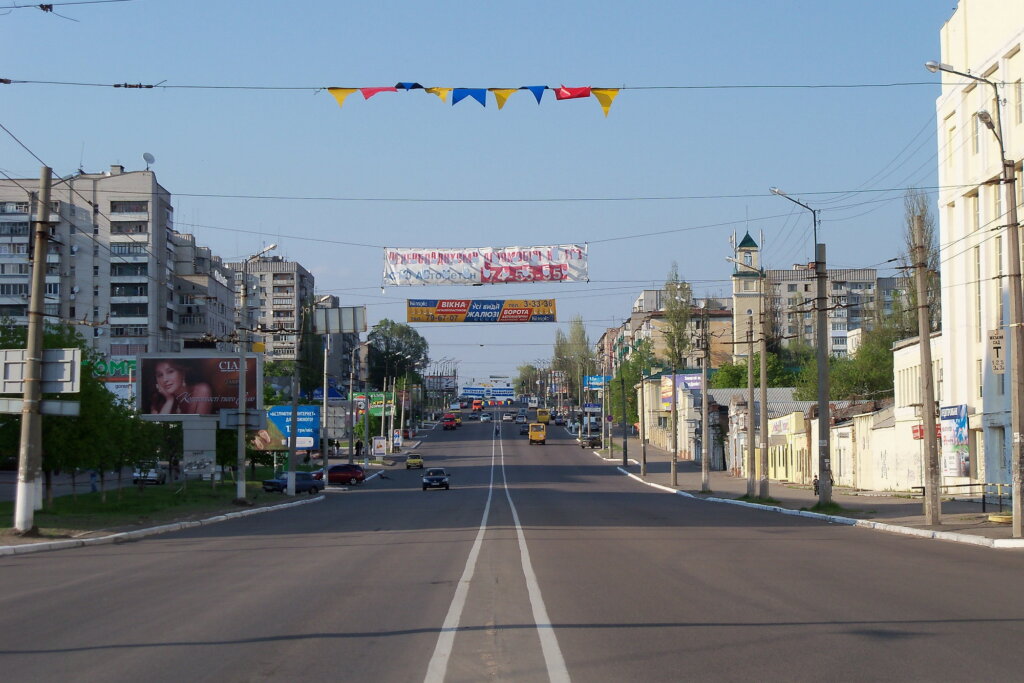Chronically short of financial support, Ukraine has started looking for cheap loans from China for road and highway projects.
Ukraine’s shift comes as lending has stalled from the International Monetary Fund because of Ukraine’s inability to meet good governance conditions that came with the current $5 billion agreement. It expires this year, with only $2.1 billion lent so far.
China’s lending comes with different strings attached.
“IMF cash requires reform, including important anti-corruption measures and de-oligarchization. Chinese money does not,” said Amanda Paul, a senior political analyst at European Policy Center based in Brussels.
What are China’s conditions? No one really knows. Ukraine’s government only said it borrowed “on preferential terms” and hasn’t even disclosed the exact amount, although a Ukrainian negotiator said it is roughly $400 million.
“China usually argues that it does not have requirements when it lends money, but there are usually political requirements. They are just often a little bit unstated,” said Zack Cooper, China expert and a scholar at American Enterprise Institute, a public policy think tank. “The constraints from the IMF are very transparent, they are public, and the constraints from China are much less transparent and in some cases much more coercive.”
But it’s not hard to connect the dots.
A week before signing an agreement with Beijing, Kyiv abruptly withdrew its support from the United Nations’ statement condemning Chinese mistreatment of Muslim Uyghurs. Beijing threatened to withhold China-made vaccines against the coronavirus if Ukraine did not pull its name from the UN statement, reported the Associated Press.
Members of parliament, on the condition of anonymity, confirmed this account to the Kyiv Post.
The Chinese Embassy in Ukraine denied imposing pressure. “China does not provide vaccines…in exchange for some certain benefits, has no geopolitical goals and does not impose any political conditions,” the statement reads.
Conditional money
“No money is ever unconditional; there are always some strings attached, even if you cannot see them clearly,” said Paul of China’s lending.
But Viktor Dovhan, an adviser for the European Union delegation in Ukraine, insists no such conditions were attached. “I was in the negotiation of this agreement, I never heard any issue over the rights of Uyghurs,” said Dovhan, who served as a deputy minister of infrastructure between 2016 and 2019.
Dovhan said the details will be made public in September if the Foreign Ministry and the President’s Office sign off on the agreement.
For now, Dovhan outlined the basic provisions: Ukraine borrows from China’s Export-Import Bank for infrastructure projects at 2% interest rate for 15 years.
The deal is said to include money for the long-awaited construction of a bridge across the Dnipro River in Kremenchuk, some 300 kilometers southeast of Kyiv, and a new Kyiv ring road.
The bridge will connect Kremenchuk with Horishni Plavni, a city 20 kilometers to the east, while the Kyiv road project will involve the extension of the highway.
Another concern is “limited use of domestic workers and domestic companies” in such joint projects with the Chinese, said Cooper. Dovhan’s response: Ukraine will ensure that local workers participate. He said the general contractor will be Chinese but that a Ukrainian subcontractor must be involved too.
But Paul is skeptical.
“Cheap money always comes at a high price, which can make it toxic,” said Paul. “Ukraine’s leadership needs to reflect carefully on the experiences of other countries that have borrowed money from China and found themselves in deep trouble through Beijing’s ‘debt-trap diplomacy’ model of doing business.”
Debt-trap history
China lures economically struggling nations into risky loans, leading to the assets being taken over if the money can’t be repaid, experts say.
Montenegro was among countries that fell victim to China’s so-called debt diplomacy, according to the March study by the U.S. — based Center for Global Development.
The researchers analyzed 100 contracts across 24 developing countries in Africa, Asia and Europe and found out that China’s most recent contracts hindered reforms in emerging economies.
The contract’s requirements often lead to immediate technical default if the country fails to stick to the Chinese conditions, said Dmitry Goryunov, senior analyst at the Center for Economic Strategy.
“If the state introduces changes to labor laws, environmental regulation, or changes its diplomatic position towards China, the contract is broken and it means immediate technical default,” Goryunov said.
China’s loans play on developing countries’ hunger for a quick economic boost.
In 2014, Montenegro signed a $944 million loan at a 2% annual rate from China’s Exim Bank to finance a highway project connecting Montenegro to Serbia. The Western Balkan country of 620,000 people is now struggling to repay the loan. China currently holds approximately one-quarter of Montenegro’s total debt. If the country defaults, China can take possession of Montenegrin land and assets as collateral.
The EU rebuffed Montenegro’s call for assistance to repay the loan but might help complete the highway.
Ukraine limits borrowing
Ukraine will not repeat the fate of Montenegro, Dovhan said: “Our projects are not as big as that of small Montenegro attracting billions of dollars, which made 75% of their budget deficit.”

Ukraine’s borrowing cannot exceed 60% of its budget deficit, said Dovhan. According to him, the bridge and will cost around $400 million. The first part of the new Kyiv road will cost $600 million to build. Altogether, $1 billion, which is 12% of the 2020 budget deficit.
It is close to the 1.3 billion euros that Hungary borrowed from China to launch a new Budapest campus of Shanghai-based Fudan University in 2024.
Under the contract, the manpower and building materials are shipped in from China, alongside the country’s ideology. In 2019, the university charter’s chapters on academic freedom were replaced by a declaration of allegiance to the Chinese Communist Party.
Speak no evil
Ukrainian officials appear to have learned quickly how to be politically agreeable.
David Arakhamia, head of the ruling Servant of the People Party in Ukraine’s parliament, told the Chinese press that the principles of his party dovetail to that of the Chinese Communist Party.
“Politically, Ukraine is always pro-Western, but we need to build infrastructure with the lowest cost, at the lowest rate, which China provides,” Dovhan said.
Past China loans
Ukraine has its own unfortunate history of borrowing from China.
In 2012, Ukraine’s state-run State Food and Grain Corporation of Ukraine (DPZKU) received a $1.5 billion loan from Exim Bank of China under state guarantees to support the supply of Ukrainian grain to China. However, the two got into a legal dispute over the amount that Ukraine must pay back.
Prior to that in 2011, China lent $372 million to Ukraine under state guarantees for 15 years to build the Air Express railway line between Kyiv and Boryspil airport. Eventually, Ukraine took over to build it more cheaply.
“Getting deeper into bed with Beijing is not a wise decision,” Paul said. “China is already a major trade partner of Ukraine.” China is the top trade partner, in fact: In 2020, bilateral trade turnover amounted to $15.4 billion.
Frustration over the U.S.
Ukraine appears to be borrowing from China out of growing disappointment with the West.
“Kyiv seems to be trying to use China as a bargaining chip with the EU and US — particularly following President Biden’s decision on Nord Stream 2, which had a devastating impact on Ukrainians,” said Paul. Financial analyst Alexei Kushch agreed, accusing Ukraine of “blackmailing Western countries, primarily Germany and the U.S. in order to receive compensation for the launch of Nord Stream 2.”
On July 21, U.S. and Germany signed an agreement aimed to solve a dispute over Nord Stream 2, the $11 billion gas pipeline running from Russia to Germany under the Baltic Sea, now almost complete. In return, Ukraine got no concrete commitments from either the U.S. or Germany to compensate for the multibillion-dollar loss in gas transit revenue.
Ukraine’s turn to China “can significantly complicate relations between the West and Ukraine,” Kushch said.
“In this scenario, Ukraine will find itself in a geopolitical vacuum,” he went on.
While Ukraine insists that it is committed to Western integration, including becoming members of the EU and NATO, Paul said Zelensky is “aware that Biden is concerned about Chinese expansionism in Ukraine and the broader region.”
Motor Sich tug of war
The U. S. and China competition has left Ukraine sometimes caught in the middle.
Since 2016, China has been trying to acquire shares in Motor Sich, Ukraine’s strategic aerospace company that produces helicopter and jet engines. Washington persuaded Kyiv not to sell it to the Chinese as it believed that Beijing aimed to use Motor Sich to advance its military capabilities or sell it to Russia, with which China has joint defense projects.
In January, Kyiv imposed sanctions against Skyrizon, the Chinese company trying to obtain a majority stake in Motor Sich. Later in March, Ukraine said it would nationalize Motor Sich.
Kyiv must ensure it will keep standing against China’s future attempts to get hold of parts of Ukraine’s economy, Paul said.
“The danger to Ukraine would be borrowing too big and not being in a position to repay the money and/or allowing China to get its teeth into massive parts of the country’s economy,” she said.
You can also highlight the text and press Ctrl + Enter









